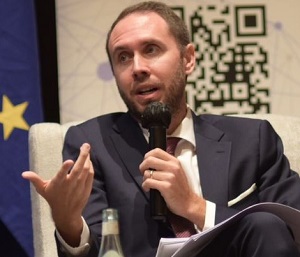Why Malaysia needs to take adopting EPR seriously
By Azizul Rahman December 28, 2022
- Associations and organisations are key to making an EPR scheme a reality
- Voluntary EPR doesn’t work, Malaysia needs legislation & shown bigger pic

First coined in 2005, Environmental, Social, and Governance (ESG) represents a more stakeholder-centric approach to doing business. It is a set of marketable standards and guidelines for a company to follow and shows its level of responsibility and consciousness.
In a REGTalk organised by Futurise and supported by EUROCHAM Malaysia, a panel of three experts and experienced professionals gathered to talk about Extended Producer Responsibility (EPR) a framework that takes the responsibility of the post-consumer cycle of products from the government and municipal alone and puts it in the hands of manufacturers as well.
Years of experience
 Phang Oy Cheng (pic), KPMG Sustainability Advisory Services Head, described the EPR as “being responsible not only for the quality of the product, but what happens after. How it is disposed of, how it is recycled, and what happened to it.”
Phang Oy Cheng (pic), KPMG Sustainability Advisory Services Head, described the EPR as “being responsible not only for the quality of the product, but what happens after. How it is disposed of, how it is recycled, and what happened to it.”
It is a part of an economic model where products do not go directly to the garbage after consumers are done with it (linear economy) or get delayed from going directly to the garbage (recycle economy) but goes back to the producers and are made useful again through sharing, leasing, reusing, repairing, refurbishing, and recycling or other mechanisms (circular economy).
In a circular economy, as Phang puts it: “waste is a resource.”
With over 30 years of experience in sustainability consulting, Phang brought with her a level of understanding of EPR in the context of Asia Pacific, more specifically Malaysia.
She pointed out that voluntary EPR does not work in Malaysia. It has been attempted time and time again for example with the aluminium recycling programs back in the 90s and more recently wastes sorting programs.
“What is needed,” she stressed, “is legislation”. But first, everyone has to get on the same page regarding adopting EPR and to do this, someone needs to show them the bigger picture. This includes the government, the producers, and a key component that interfaces the two together, associations.
In reality, a lot of countries in the world, especially the biggest players have adopted EPR. It doesn’t negatively affect the bottom line, but, not adopting EPR will take away opportunities from Malaysia. In other words, countries that adopt EPR may not want to do business which those that don’t.
At the same time Phang points out how Malaysia is currently focused only on plastics, which looks good optically, but only the tip of the country’s waste iceberg.
“The majority of the waste in proposal countries is food. We throw away a lot of food that gets dumped into landfills, which generates methane which is flammable and is worse for global warming. They are time bombs,” warns Phang.
The need for cooperation
Representing the World Wildlife Fund (WWF) Malaysia’s Plastic Initiative was Tahirah Banu Mohd Ariff (pic).
She explains that for the goal of adopting EPR, the WWF could help initiate talks with the government and advice on a framework, talk to businesses to encourage them to adopt the idea, facilitate talks between the government and business, and provide both knowledge and support to make it happen.
“We need a legal framework for all the relevant producers and make it mandatory for them to be financially responsible and a part of waste management,” said Tahirah. “We see high-value recyclables being recycled, while others are neglected”.
She added that low-value recyclables need to be legislated and technologies to address it must be brought in.
While some complain that post-pandemic is the time for economic recovery not for the adoption of EPR, Tahirah highlighted that now is the time.
“The rest of the world is moving towards a circular economy, and it will bring opportunity. We will miss out on business opportunities if we don’t do it,” she explained.
Such efforts cannot be done by a single party as there are so many players. It has to be done together in a multi-stakeholder approach.
An eye towards Europe, as a good starting point
 Bringing the experience of a company which has adopted EPR based on European standards was Michele Martin (pic), Lisap Asia Pacific Sdn Bhd General Manager.
Bringing the experience of a company which has adopted EPR based on European standards was Michele Martin (pic), Lisap Asia Pacific Sdn Bhd General Manager.
Lisap is a family-owned Italian company with 70 years of history and is experienced in making colour, liquids and aerosol hair products. In terms of EPR, they know how to deal with plastics, water, and aluminium.
Martin pointed out that Japan, South Korea, Chile, and 25 out of 27 countries in the European Union have adopted EPR schemes. Other countries like South Africa, Kenya, and Vietnam are still in their early stages.
The concept itself was introduced by Thomas Lindquist in Sweden in 1990, he proposed that product manufacturers and distributors should be responsible for the life of their products and packaging after the consumer is through with them.
“When it comes to developing the EPR framework in Malaysia, I am not saying that we must rely on Europe, but it is a good starting point as they are a step ahead,” said Martin.
He added that relying on public funding and monetary contribution is not enough as it cannot scale. Clear targets must also be drawn out, 10 to 50 years ahead and everyone must strive to achieve them.
“We can’t just copy and paste the solution. It is a matter of properly designed from the production stage to the EPR scheme, it will all take time and will need a lot of support,” Martin explained.
The best approach, he offered, is involving the right stakeholders. Associations and organisations are connected between the government and the companies. They can make a difference by not only monitoring the progress of EPR but to enforce it as well.
“The government can’t do this on its own,” stressed Martin.
Related Stories :


